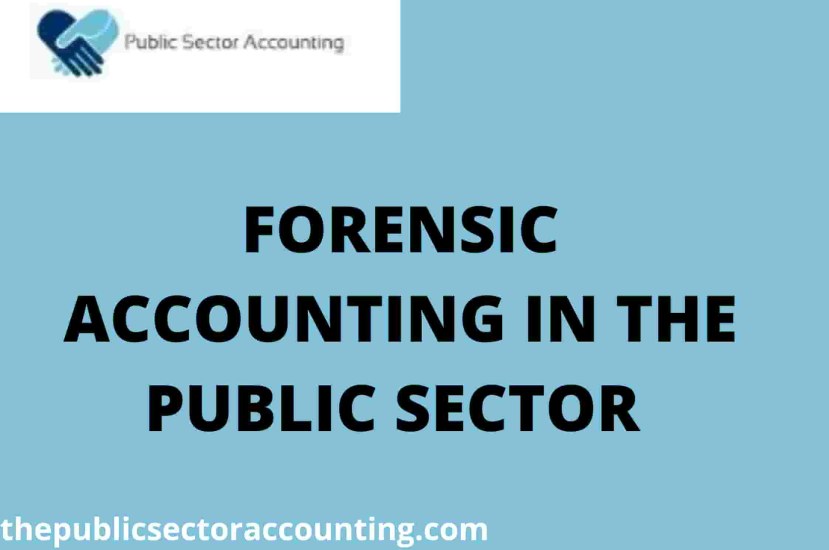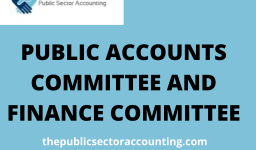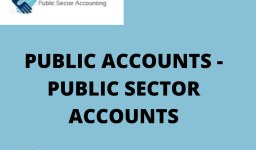Forensic accounting in the public sector is what we are going to consider in this public sector accounting guide.
CPAs’ traditional functions in the public sector, whether federal, state, or municipal, have focused on auditing, financial reporting, and management accounting. However, these positions have clearly expanded to encompass both investigative and reactive forensic accounting services.
Mercadien’s Forensic Accounting and Government Services groups collaborate, on occasion, with attorneys to service a diverse client base, which includes state and local governments, counties, municipalities, and school districts.
We are dedicated to offering high-quality accounting and consulting services, as well as forensic audits and investigations.
Summary of Contents
FORENSIC ACCOUNTING IN THE PUBLIC SECTOR
Forensic accountants look for red flags that indicate potentially fraudulent financial activity, which frequently results in an in-depth examination of individual transactions, accusations, or claims.
Forensic accountants combine traditional accounting abilities with professional skepticism and an investigative approach to debunk various claims.
According to the Association of Certified Fraud Examiners (ACFE), government and public administration were the third most frequently inspected sector in fraud cases, trailing only banking and financial services and manufacturing.
According to the ACFE’s survey, fraud schemes involving corruption occurred most frequently in the public sector.
Corruption is defined as the improper use of influence in a commercial transaction to obtain a profit for the actor or another person in violation of the actor’s or another person’s responsibility and/or rights.
In essence, it is the exercise of influence in order to secure a personal or private benefit. Fraudulent behaviors that are deliberate and dishonest, such as corruption, can undoubtedly ruin a person’s reputation.
Additionally, such actions can inspire discouragement and erode trust among employees, managers, investors, customers, and citizens, as well as other regulatory authorities.
Occasionally, allegations of wrongdoing are made via a hotline created by the client to report fraud, waste, and abuse.
They may also occur as a result of internal or external auditors identifying possibly inappropriate or suspicious behavior during testing procedures.
During an engagement, attorneys and forensic accountants may collaborate closely to ensure that pertinent accounting data is requested and supplied. Among the forensic accounting and other investigation procedures used are the following:
- locating and analyzing papers and financial data;
- research into public records; and
- electronic communications examinations and forensic interviews.
Massive amounts of data are studied in order to identify trends and indicators of corruption or other fraudulent conduct.
Utilizing a forensic accountant has a number of advantages, including increasing operational efficiencies, safeguarding an organization’s reputation and best interests, and managing finances with a professionally skeptical perspective.
Read Also: DISPOSAL OF PUBLIC ASSETS AND PUBLIC SECTOR STORES MANAGEMENT
Forensic accountants can also be invaluable in examining financial processes with the goal of identifying remedies or spotting problems that could otherwise go unnoticed.
Forensic audits can be used to dissuade possible corruption and/or employee misconduct by assisting management in formulating future action plans to assist in preventing, detecting, and deterring fraud throughout the organization.
THE RELEVANCE OF FORENSIC ACCOUNTING IN THE PUBLIC SECTOR
Malaysia’s development efforts are harmed by corruption and other financial and economic crimes.
Most of these crimes and wrongdoings have a significant negative impact on the Malaysian economy. Government agencies’ credibility is being questioned. Measures of transparency become suspect and worthless.
The requirement for professional skills in order to carry out proper procedures is intended to reduce the percentage of corruption and fraud. This study has two main goals: first, to find out how well-informed government agency administrators are about the role of forensic accountants; and second, to find out how important forensic accounting is in the public sector.
There were 50 structured interviews and 50 questionnaires sent out and collected from three government agencies in the Klang Valley. These agencies were the Inland Revenue Board, the Ministry of Education, and the Shah Alam Court Council.
The findings show that most government administrators know about the work of forensic accountants and think that their existence is a good way to keep financial fraud and crime in the Malaysian economy from getting worse.
1. Defend fraud, forensic accounting, and the duty of the forensic accountant:
According to the 50 questionnaires that were given out, 100% of the people who took them knew what fraud was, how important forensic accounting was, and how it worked in the public sector.
However, only 60% have a firm grasp on their specific tasks in the public sector. The reason for this finding is that the majority of respondents have less than five (5) years of work experience in the public sector, which means they are unable to fully comprehend fraud assessment procedures in the public sector.
It also doesn’t have the right policies and training in place, which means that most of the organization’s employees aren’t sure what to do about it.
The Malaysian Institute of Accountants (MIA) published the Malaysian Approved Standard on Auditing in 2001. It is used by auditors and the rest of the world to figure out red flags and other rules for spotting them.
Read Also: CORPORATE GOVERNANCE PRINCIPLES FOR PUBLIC SECTOR ENTITIES
January 13, 2022
This standard includes instances of situations or events that suggest an elevated risk of fraud, referred to as “red flags.” As such, the guide benefits not only auditors but also other organizations and associations by facilitating the sharing of critical knowledge and acting as a predictively effective tool for detecting and preventing wrongdoing. It also helps you be more effective at work and figure out how likely it is that someone will try to steal from you in difficult situations.
If Smith (2005) is correct, then fraud is the most common business problem in the public sector, and it can lead to a lot of money and a lot of trouble.
This was mostly because there was not enough information about any rules or criteria that the group had set up.
Fraud is notorious for being smooth and imperceptible. In order to make sure that public sector workers understand how important the work of a forensic accountant is, they need to be aware of the risks and dangers they face.
As a result, training and knowledge transfer must be set up to teach employees about the seriousness of fraud and how it could affect their jobs at the company.
Forensic accounting will become more popular in the public sector because more people will know about it and accept it.
2. Establishing a connection between fraud and forensic accounting:
80% of the 50 people who took the survey knew or knew that fraud and forensic accounting are linked.
According to the people who took the survey, having a forensic accountant help manage, stop, and stop fraud in the public sector is very important.
In Malaysia, there has been a big rise in fraud, especially in the public sector. This is a big problem for both the government and the general public.
Recognizing the need to combat corruption, the government has implemented a number of measures, including the Whistleblower Protection Act 2010, the e-Government Flagship Application, and others. In response to the growing demand for transparency and credibility, the governments of the Asian-Pacific region launched the Anti-Corruption Initiative in 1999. It is a non-profit organization dedicated to promoting integrity among its members.
Malaysia’s Anti-Corruption Commission has started the process of building a database that is mostly for people who have done bad things. It’s called “Name and Shame.”
The goal of this database is to show people who might be criminals how serious corruption is in the eyes of the law.
People who took the survey said that forensic accountants should help businesses find and stop fraud at an early stage.
Because of this, forensic accountants need to have a wide range of skills and knowledge in order to be able to do good forensic accounting (Digabriele, 2008). This includes accounting, auditing, law, and investigative techniques, as well as strong ethical values and soft skills.
According to J. Krst (2009), a forensic accountant’s role is to aid lawyers, courts, regulatory agencies, and other organizations in investigating financial statements through the use of their auditing expertise and investigative techniques.
Additionally, despite the foregoing, the public sector requires the services of forensic accountants more than the private sector (Kasum, 2009).
This remark backs up the study’s claim that forensic accountants need to work in the public sector to help the government find, stop, and investigate fraud.
According to a survey by the AICPA, forensic accountants possess a greater ability to analyze and comprehend financial accounts and information and are well-versed in applicable professional standards.
As a result, these abilities can contribute to the reduction of fraud and misconduct in public-sector organizations.
The application of information technology (IT) and forensic accounting are both critical.
3. This section will look for information about how important information and communication technologies (ICTs) are to forensic accounting.
According to the data, 90% of respondents agreed, while 10% disagreed. As we all know, ICTs have been instrumental in recent years in contributing to the improvement of the transparency of government service delivery. A good example is the Malaysian government’s 1997 implementation of e-government.
It began with the establishment of the Multimedia Super Corridor (MSC), an e-government flagship application that incorporates MyKad, smart schools, and telehealth.
The e-government project increased access and provided better services, including transaction-based services, payment-based services, and even non-payment-based services (MDC, 1998).
Additionally, ICT has been a critical tool for combating corruption. It strengthens the administration’s actual transparency and accountability. ICT is a tool that forensic accountants can use to assist them in preventing fraud in the public sector.
These tests, like how roles are separated in approving the budgets for government agencies, can be done right away.
According to David (2005), the paper-based system is the reason for organizational fraud.
A computerized system would eliminate fraud from all transactional activity. Corruption can be reduced by the promotion of good governance, the strengthening of reform initiatives, the reduction of corrupt behaviors, and the enhancement of relationships between government administrators and citizens. Shim and Eom (2008)
Shim and Eom (2008) say that ICTs have a lot of potential and are already making a difference in anti-corruption efforts. They say that ICTs can help by improving internal and managerial control over corrupt behavior and by making the government more accountable and transparent.
A well-functioning internal control system is an effective and efficient way to stop fraud and cut down on the cost of getting rid of it.
Conclusion
In short, forensic accounting is an approach used to establish credibility and debunk fraud. It is a specialist discipline that involves the application of accounting evidence and conducting exhaustive investigations equivalent to the highest degree of auditing procedures in order to settle most legal difficulties.
People who do audits, investigative methods, accounting standards, and a wide range of economic references need to be very knowledgeable about the procedures.
By looking at financial data critically, a forensic accountant comes up with conclusions that can be used to figure out how much money is worth and find out about suspicious or unusual patterns or transactions.
It gives a court of law an accounting study and economic reasons for the fraud that was done, so they can settle a dispute.
As a result, one may argue that forensic accounting is critical to detecting and mitigating accounting fraud and, ultimately, eliminating its existence within an organization.
please leave comment below






Leave a comment